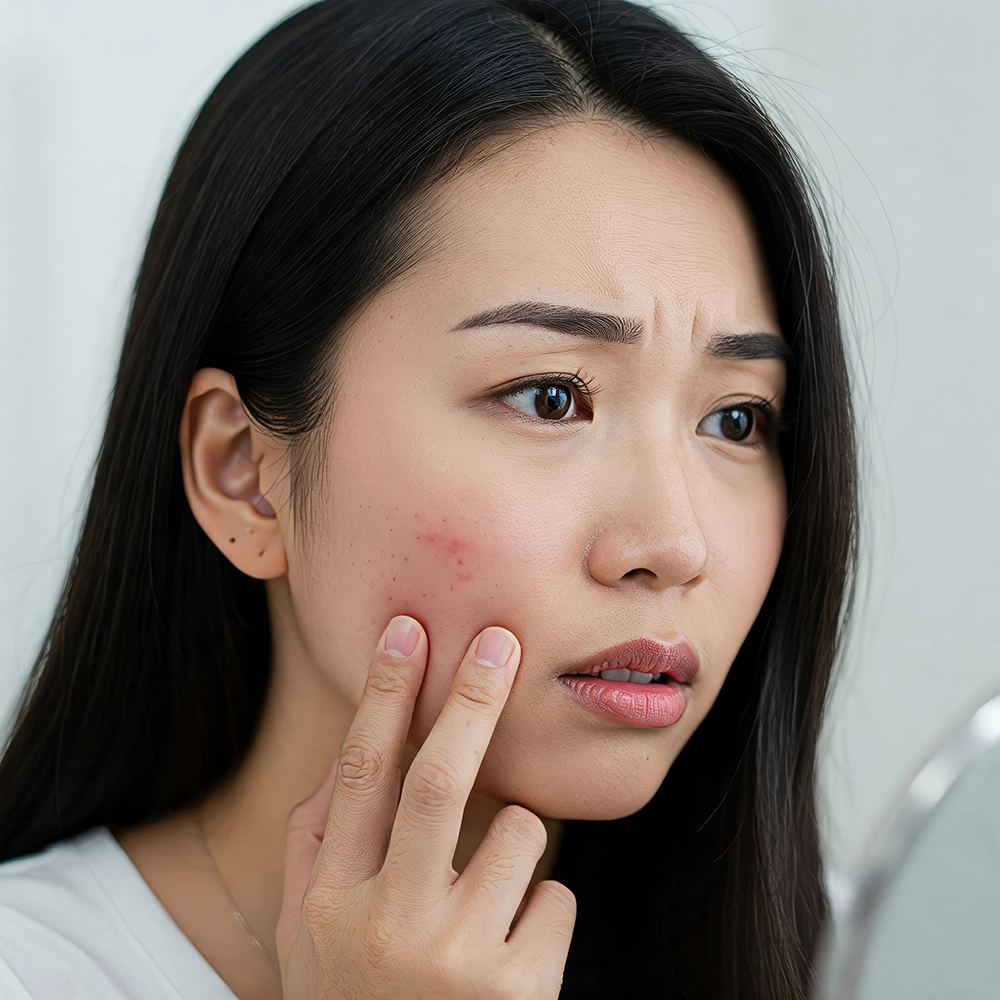Sensitive/Dry Skin

Sensitive and Dry Skin: Your Comprehensive Guide
Struggling with skin tightness, flakiness, redness or irritation? You’re not alone. Sensitive and dry skin is a common concern that affects people of all ages and skin types. Whether your skin reacts easily to environmental triggers or feels parched no matter what moisturiser you use, this guide will help you understand the causes and find the solution you need.
Understanding Sensitive and Dry Skin
Characteristics of Sensitive Skin
Characteristics of Dry Skin
The Skin Barrier and Its Importance
Causes of Sensitive and Dry Skin
Environmental Factors
Harsh Skincare Products
Underlying Skin Conditions (Eczema, Rosacea)
Allergies
Skincare Routine for Sensitive and Dry Skin
If you have sensitive and dry skin, it is crucial to craft a skincare routine that supports your skin barrier.
Gentle Cleansers
Use a non-foaming, fragrance-free cleanser that won’t strip your skin’s natural oils. Look for ingredients like glycerin, ceramides, or panthenol, which cleanse while supporting hydration and barrier repair.
Tip: Avoid hot water, which can worsen dryness—opt for lukewarm instead.
Hydrating Serums and Moisturisers
Layer hydration starting with a hydrating serum (like one with hyaluronic acid) and follow with a richer moisturiser to lock it in. Look for products containing ceramides, squalane, niacinamide, or colloidal oatmeal for soothing relief and barrier support.
Sunscreen for Sensitive Skin
Sun damage exacerbates both sensitivity and dryness. Choose a mineral sunscreen with zinc oxide or titanium dioxide, which are less likely to irritate. Avoid chemical filters if your skin reacts easily.
Treatments for Sensitive and Dry Skin
If your skin needs more than daily maintenance, professional treatments can offer a boost in hydration and repair.
Hydrafacial
Hydrafacial is a gentle, non-invasive treatment that cleanses, exfoliates, and infuses skin with hydrating serums. It’s customisable, making it suitable for even sensitive skin types. The procedure leaves skin smoother, more radiant, and deeply moisturised—and there’s no downtime.
LED Therapy
Low-level light therapy (particularly red LED light) helps reduce inflammation, soothe redness, and promote skin healing. It also stimulates collagen production, supporting a stronger skin barrier over time. LED therapy is pain-free, gentle and safe for sensitive skin.
Calming Masks
Calming masks deliver intense hydration and soothing ingredients like aloe vera, chamomile, or calendula directly into the skin. These treatments help calm irritation and provide immediate relief for dry or reactive complexions.
Lifestyle Tips for Managing Sensitive and Dry Skin
Skincare is important, but your daily habits also play a role in managing sensitivity and dryness.
Avoiding Irritants
- Use fragrance-free, hypoallergenic laundry detergents.
- Avoid wool or rough fabrics that rub against the skin.
- Limit time in chlorinated pools or hot showers.
Staying Hydrated
Managing Stress
Stress can trigger inflammation and worsen skin conditions like eczema and rosacea. You can manage your stress by changing your lifestyle to include:
- Meditation or yoga
- Regular exercise
- Adequate sleep
Get Professional Help Now
If your skin is persistently dry, red or aggravated, you don’t have to manage it alone. At DermClear, we have years of experience treating sensitive and dry skin. We will assess your skin type, triggers and concerns before customising a treatment plan for you.
Whether you’re looking for relief from eczema flare-ups, want to restore glow to dull, flaky skin, or simply need guidance on building a routine that works, we’re here to help. Schedule a consultation today.
Sculpt the Body You Want–Feel Confident in Your Skin
Our friendly team is looking forward to serving you. For urgent enquiries and appointment requests, please call the clinic directly.